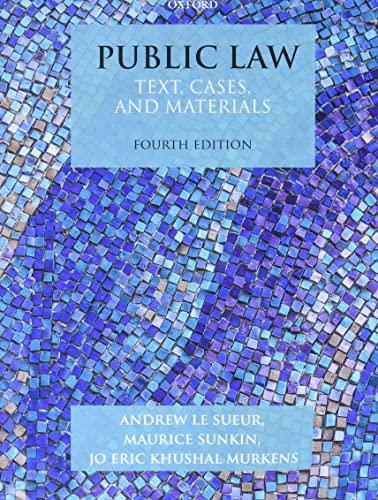Question
Francis owns a business called Noodle Delight (ND), which manufactures noodles to be distributed to hawkers and restaurants in Singapore. Francis happened to meet with
Francis owns a business called Noodle Delight ("ND"), which manufactures noodles to be distributed to hawkers and restaurants in Singapore. Francis happened to meet with a socially and environmentally conscious restaurant owner called Evelyn, and they were discussing a potential deal under which Francis will supply 50kg of rice noodles to Evelyn on a weekly basis.
Evelyn asked Francis, "Are your rice noodles free of artificial preservatives? I want to serve only the freshest organic food to my customers and therefore the noodles must be free of artificial preservatives." Francis replied, "Don't worry Evelyn, my noodles are definitely free of artificial preservatives." He added, "I can provide you with a sample, and you can test it out for yourself." Evelyn replied in a half-joking manner, "OK, we must put this point (on the noodles being free of artificial preservatives) into writing!"
Sensing that Evelyn was still hesitant, Francis further assured her, "I think my rice noodles are even gluten-free!" Evelyn was satisfied with Francis' response and she also found the price quoted by Francis to be attractive, so she proceeded to place the order with Francis at the end of the discussion. Francis issued Evelyn with a handwritten confirmation slip stating the order quantity and the price, but there were no other terms on the slip.
The label "gluten-free", which is sometimes used to describe food products, means that they exclude gluten, which is a mixture of proteins found in certain grains such as wheat. Under ordinary circumstances, rice noodles are indeed gluten-free since they are made from rice flour, and not wheat flour. However, unknown to Evelyn, Francis' noodle factory also manufactures wheat-based noodles (in addition to rice noodles). There is therefore some extent of contamination with gluten-containing substances at the factory, and the rice noodles supplied to her were not completely gluten-free. Evelyn only found out about this when one of her customers suffered an allergic reaction due to the gluten.
(a) Compare terms and representations, and explain how the statement "Don't worry Evelyn, my noodles are definitely free of artificial preservatives" should be classified (i.e. whether as a term or representation). In your answer, you should state the basic test used to distinguish between terms and representations and also apply all thefive (5)guidelines from the case law.
(25 m)
(b) assume that the following statement made by Francis to Evelyn is a representation (and not a contract term):"I think my rice noodles are even gluten-free!"Based on the facts and circumstances given in the scenario in relation to this representation, discuss and conclude whether Evelyn would be entitled to rescind the contract with Francis on the basis of misrepresentation.
(25 m)
Step by Step Solution
There are 3 Steps involved in it
Step: 1

Get Instant Access to Expert-Tailored Solutions
See step-by-step solutions with expert insights and AI powered tools for academic success
Step: 2

Step: 3

Ace Your Homework with AI
Get the answers you need in no time with our AI-driven, step-by-step assistance
Get Started


